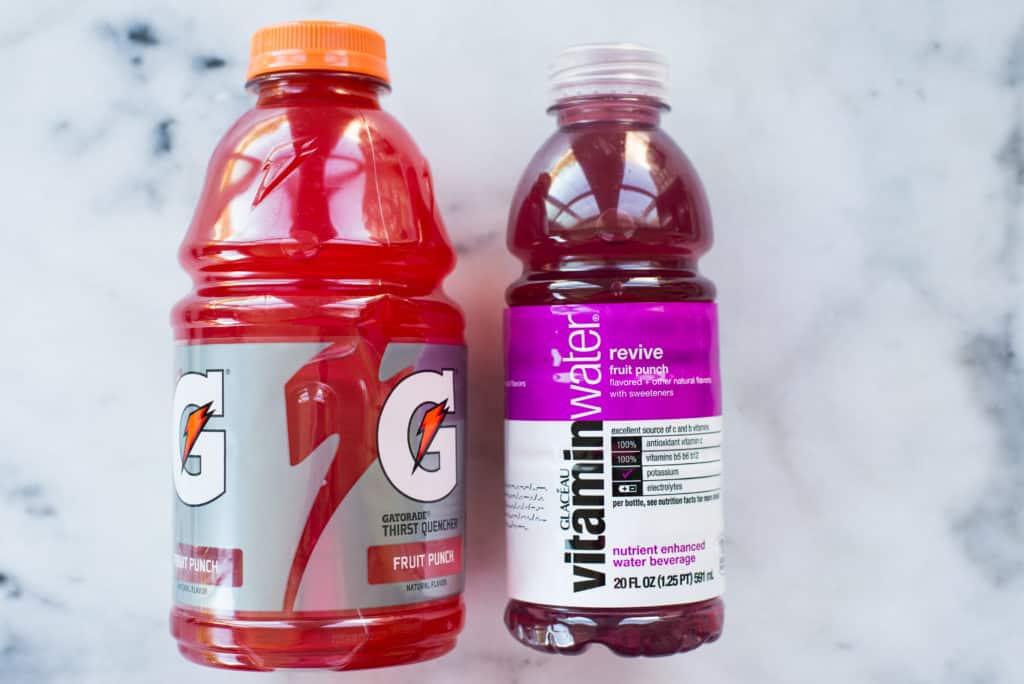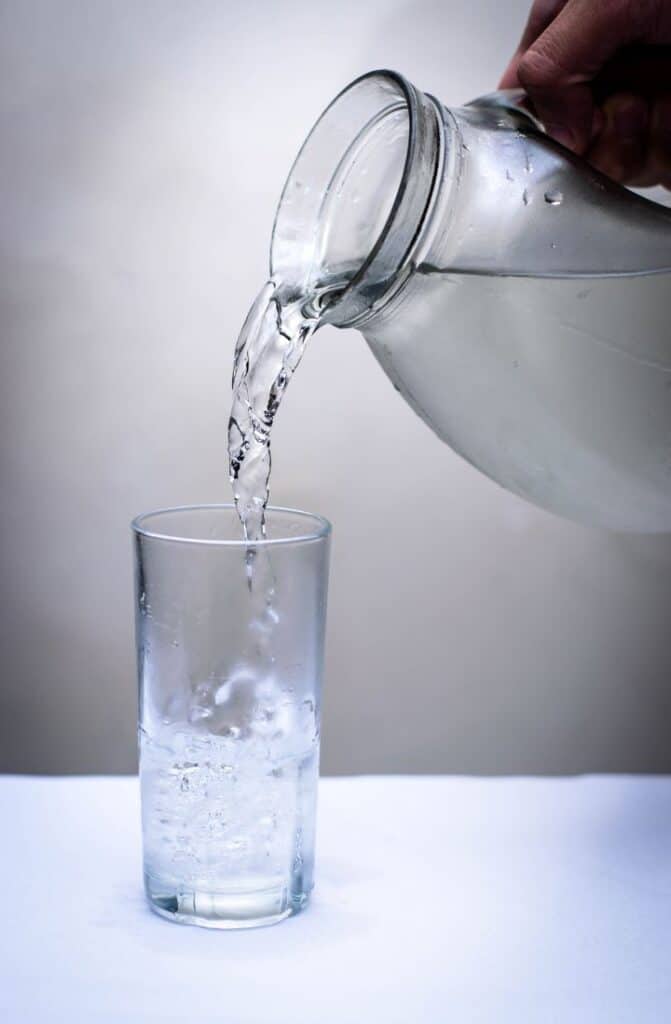Electrolytes are an important part of every person's daily diet. These important minerals help to regulate your fluid balance, acid-base balance, and blood pressure. If you have improper electrolyte balances, it can make you feel ill or negatively impact your athletic performance and your overall quality of life.
What Are The 5 Main Electrolytes?
The most significant electrolytes include sodium, potassium, chloride, magnesium, calcium, phosphate, and bicarbonate.
- Sodium is an electrolyte that is crucial for maintaining blood pressure and transmitting nerve signals.
- Potassium is essential for proper muscle and heart function.
- Magnesium contributes to muscle relaxation and overall cardiovascular health.
- Chloride plays a role in maintaining blood volume.
- Bicarbonate helps to regulate the body's pH levels.
These electrolytes collectively ensure the body's systems function optimally, making them incredibly important for overall health and well-being.
What Are The Main Sources of Electrolytes?
Common sources of electrolytes include various foods, such as fruits, vegetables, dairy products, and beverages like sports drinks.
Electrolyte supplements and fortified products are also available for those requiring extra replenishment, such as athletes or individuals with certain medical conditions.
Understanding these sources and their role in maintaining a balanced intake is crucial for promoting overall health and preventing electrolyte imbalances.

Understanding Electrolyte Balance
While you might not think about it every day, electrolyte balance is very important because these tiny charged particles are what make everything run smoothly within your body. Basically, they play a huge role in keeping things running smoothly.
Role of Electrolytes in Bodily Functions
When it comes to bodily functions, electrolytes, like sodium, potassium, calcium, magnesium, chloride, and bicarbonate, work together to ensure your body can perform all its big and important functions. They're responsible for conducting electrical impulses, which are messages that help your muscles contract, your nerves communicate, and your cells do their thing. Electrolytes are the key to a properly functioning body!
Importance of Electrolyte Balance
Now, let's dive into the concept of electrolyte balance. You need the right amount of these electrolytes to keep all of your body’s functions running smoothly. Too much or too little of any of them can cause your body to get out of whack and lead to poor functioning or feeling sick. Having a proper electrolyte balance means maintaining the right amount. You do not want to have too much or too little.
Signs of Electrolyte Imbalance
Sometimes, that balance can get thrown off, and that's when you might start noticing signs of an electrolyte imbalance. You know the feeling when something just doesn't seem quite right? It could be...
- muscle cramps
- irregular heartbeat
- weakness
- twitching
- changes in blood pressure
These are like little warning signs from your body, telling you, "Hold up, we need to get those electrolytes back in balance!" These signs are your body's way of giving you a heads-up to take action and get things back on track.
When you experience something like dehydration, it causes an electrolyte imbalance and can lead you to experience symptoms, like vomiting or diarrhea. People often underestimate the importance of good hydration and electrolyte balance and do not realize the unfortunate side effects that may be experienced when these things are not in line with your body's needs.

How To Determine Your Daily Electrolyte Needs
Not everyone has the same exact electrolyte needs. For example, some people are saltier sweaters than others or sweat less in general, which can determine how much sodium you need to take in during or after a run or other athletic activity. Getting to know your body and its personal electrolyte needs is important.
Recommended Daily Intake of Electrolytes
There is a recommended daily intake of electrolytes, but you should know that it varies depending on the electrolyte and your individual circumstances. For most people, it's all about finding that sweet spot, which can take some trial and error, especially if you are an endurance athlete or someone who does physical activity for extended periods of time.
Factors Influencing Individual Electrolyte Requirements
Every person and their electrolyte needs are unique. The factors listed below can sway your electrolyte needs.
- age
- sex
- activity level
- climate
- medical conditions
So, your friend who's always lifting weights might need more potassium, while your cousin in the sweltering desert might need some extra sodium to beat the heat.
Even your own personal electrolyte needs can change over time or under different circumstances. You may need to increase your sodium intake if you are a runner and plan to compete in a long race in humid conditions or at altitude. Other similar instances require adapting your intake as well, and front-loading your electrolytes (intaking more electrolytes in anticipation of losing them) may be useful.
Common Electrolyte-Rich Foods and Beverages
But where do you find electrolytes? Fortunately, they are easy to find in everyday foods and drinks.
- Fruits,like bananas are your go-to for potassium
- Dairy for calcium
- Spinach for magnesium
- Pickles or olives are great for sodium.
As for beverages, water keeps you hydrated, but adding an electrolyte supplement to it is a great way to get in extra electrolytes and accomplish proper rehydration. You can also drink ready-made electrolyte drinks, also known as sports drinks, like Gatorade. However, opt for electrolyte drinks that are low in added sugars and artificial colors.
The important part is to remember it's all about balance. Listen to your body, adjust your intake based on your lifestyle, and keep those electrolytes flowing to stay feeling good and can crush your goals.

Advantages of Daily Electrolyte Consumption
Let's talk about why drinking electrolytes daily can be precisely what your body needs. It's not just about quenching your thirst; it's about keeping your body’s functions running smoothly.
Enhanced Physical Performance
You've probably heard that staying hydrated is essential, and electrolytes play a large role in hydration. When you sweat it out during an intense workout or on a scorching summer day, you lose electrolytes with that sweat. Sipping on a drink that is packed with electrolytes can help you replenish what you've lost. It's like giving your body a big, refreshing drink of vitality.
Enhanced Physical Performance
When it comes to physical performance, electrolytes are very important, especially sodium and potassium. They are like your personal cheerleaders during exercise. They help maintain your body's fluid balance and keep those muscle contractions on point. When you're sweating bullets at the gym or running that extra mile, electrolytes are your secret weapon to keep you going strong.
Reduced Risk of Muscle Cramps
While many athletes know the impact electrolyte balance has on muscle cramps, not everyone realizes that it can be caused by your electrolytes being out of whack. Do you know those painful leg cramps that sneak up on you during the night? Yeah, those are pretty horrible to experience.
Electrolytes, like magnesium, can help relax your muscles and prevent those crampy surprises. So, whether you're running a marathon or heading to bed, keeping your electrolytes in check can save you from those painful cramps.

Potential Drawbacks of Excessive Electrolyte Consumption
While there are many benefits to drinking electrolytes daily, there may also be some risks. Let's discuss the potential drawbacks of going overboard with your electrolyte fix.
Risk of Overhydration
First up is the risk of overhydration. Yes, you read that right. You can have too much of a good thing. When you chug electrolyte-rich drinks like they're going out of style, you might unknowingly flood your system with fluids. This can lead to a condition called hyponatremia, where your blood sodium levels drop dangerously low. Symptoms include nausea, headaches, and even confusion. So, don't get too carried away, and remember that moderation is key when it comes to drinking electrolytes daily.
Electrolyte Toxicity
Consuming more electrolytes than your body needs can lead to a dangerous imbalance. For instance, excessive potassium can mess with your heart rhythm, while too much calcium can mess with your kidneys. So, it's important to be conscious of your intake and stay safe with electrolyte consumption. As long as you check in occasionally, you'll keep those bodily functions in check.
Expense and Sustainability Concerns
Lastly, there are expense and sustainability concerns. Those fancy electrolyte-enhanced drinks and supplements can be pretty spendy. Plus, the production of these products can have an environmental impact. So, it's worth considering more eco-friendly and budget-friendly alternatives like natural electrolyte-rich foods or hydration solutions. Tossing a little sea salt into your water with some fruit never hurts!

Who Should Consider Daily Electrolyte Consumption?
Let's discuss who should consider hopping on the daily electrolyte consumption bandwagon. It's not just for the elite athletes or people living in desert areas. There are many people out there who can benefit from electrolyte supplementation.
Athletes and Active Individuals
For athletes and active individuals, you are likely out there sweating buckets, pushing your limits, and generally giving your bodies a solid workout. Well, guess what? With all that sweat comes the release of electrolytes. So, if you're on the move, breaking a sweat, or just going the extra mile (literally), daily electrolyte consumption might be your new best friend. It helps keep you hydrated, sustain energy levels, and prevent those pesky muscle cramps that can end your athletic adventures.
People With Medical Conditions Affecting Electrolyte Balance
Now, let's talk about those with medical conditions that mess with their electrolyte balance. Conditions like kidney problems, heart issues, or even diabetes can throw those electrolytes out of whack. Managing your electrolytes when you have a medical condition isn't just a matter of choice. It's necessary. Keeping tabs on your electrolyte intake can help you stay on top of your health and manage such conditions.
Individuals in Hot and Humid Climates
Last but not least, people living in hot and humid climates must stay on top of their electrolyte intake. If this is you, you’re sweating buckets when the sun's blazing and the air feels like a sauna. And that means you're losing electrolytes. Daily electrolyte consumption is the secret weapon to beat the heat. It helps you stay cool, maintain energy levels, and avoid feeling like a deflated balloon by noon.
So, whether you're an athlete, have a medical condition, or just live where summer never seems to end, daily electrolyte consumption can be your ally. It's not just for the elite athletes. It's for anyone looking to keep their body in tip-top shape and feel great all day.

Takeaways
Daily electrolyte consumption can be a game-changer whether you're an active go-getter, dealing with medical challenges, or simply soaking up the sun in a hot and humid location. It's not about fancy sports drinks; it's about keeping your body's electrical system running smoothly.
So, listen to your body, stay hydrated, and know that a little daily electrolyte boost can go a long way in keeping you feeling your best. In the end, it's all about finding that sweet spot. Electrolytes are great, but too much can lead to trouble.



Comments
No Comments